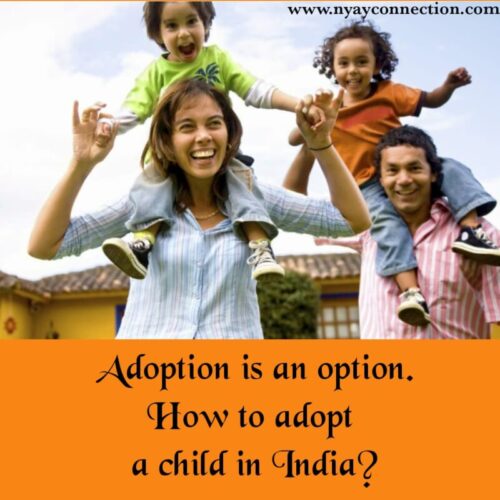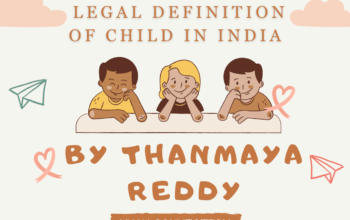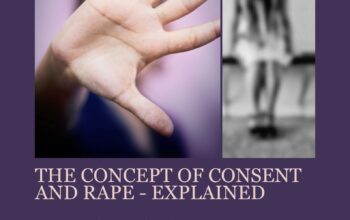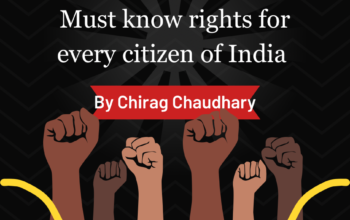Whether or not to procreate is a choice and not an obligation, as it must be. Some women desire to procreate while for others it is an unsure trail to take considering the risk of carrying a baby, time and emotions involved and bodily suffering or detriments to health it may bring. This being one of the reasons for one to consider adoption there can be numerous other reasons like infertility, career, lifestyle or one may not want to pass on genetic health issues to their offspring or maybe you are single and want a child. Whatever be the trigger, adoption is always a good option.
Let us understand adoption. Adoption is a legal process that enables nonbiological parents or a nonbiological parent to take a child as their own and entrust themselves with the responsibilities related to the child. It gives the adopted child all the benefits and rights of being a biological child.
Adoption in India
Adoption in India is governed by following set of laws:
1. Hindu Adoption and Maintenance Act,1956
2. Guardianship and Wards Act, 1890
3. Juvenile Justice (Care and Protection of Children) Act,2015
Adoption under Hindu Adoption and Maintenance Act,1956
As the name of the Act suggests, it deals with adoption of a Hindu child by Hindu parents or parent. It applies to Hindu, Buddhists, Jain or Sikh. This Act does not apply to Muslims, Christians, Parsi or Jew. Thus, a Muslim, Christian, Parsi or Jew cannot adopt a child through this Act, but they may adopt a child through Guardianship and Wards Act,1890. The process of adoption under both acts is different and rules are different.
A Hindu child below 15 years of age who is not already adopted can be adopted under this Act. A child can be adopted from natural parents or a guardian.
Where the child and prospective adoptive parent is of opposite gender the adoptive parent must be 21 years older than the child adopted.
If the prospective adoptive parents or parent have a son or grandson or great grand-son alive, they cannot adopt a son.
Similarly, if prospective parent or parents have a daughter or granddaughter or great grand-daughter alive, they cannot adopt a daughter.
If the parentage of the child is not known and the child is brought up as a Hindu, Buddhist, Jain or Sikh this Act would apply.
Adoption under Guardianship and Wards Act,1890
As earlier mentioned, Hindu Adoption and Maintenance Act,1956 governs adoption among the Hindus, Buddhists, Jain or Sikh. Among Muslim, Christian, Parsi or Jew personal laws do not provide for adoption. But under the Guardianship and Wards Act,1890 there is no bar of religion or race or creed. The main focus here is that a person cannot claim adoption but mere guardianship under the Guardianship and Wards Act. The child does not get rights of a biological child like, inheritance. The guardian may leave any property through Will. After attaining the age of majority, the child gets an independent identity. The person desirous of being a guardian of person or of property of minor or both must make an application to the District Court.
What guardianship means?
Guardian means a person having the care and custody of the person of a minor or of his property, or of both. Minor means a minor according to Indian Majority Act that is, who is below the age of 18 years.
Guardian of person
A guardian of the person has the custody of the child and is entrusted with support, health, education and other requirements of the minor child who after adoption becomes his\her ward.
Guardian of property
A guardian of the property deals with the property of minor child as a man of ordinary prudence would deal with it as if it were his own and he may do all acts which are reasonable and proper for the realization, protection or benefit of the property.
Adoption under Juvenile Justice (Care and Protection of Children) Act, 2015
The Act was enacted to provide for proper care, protection, rehabilitation of children. It aims to keep a child-friendly approach while dealing with children found to be in conflict with law. In context of adoption, this Act facilitates adoption of orphan, abandoned and surrendered children. It also aims at rehabilitation and social integration of orphan, abandoned and surrendered children. It provides for adoption through adoption agencies.
Who can adopt under J.J. Act?
A single adoptive parent (bachelor or spinster). A bachelor cannot adopt a girl child.
Adoptive parents irrespective of whether they already have a child or not (unlike under Hindu Adoption and Maintenance Act,1956).
Between the adopted child and the parents there must be age gap of at-least 25 years. The prospective adoptive parents should be physically, mentally and emotionally stable, financially capable and shall not have any life threatening medical condition.
No child shall be given in adoption to a couple unless they have at least two years of stable marital relationship.
Who can be adopted?
1. Every district or group of districts have child welfare committee that declares children as orphan, abandoned or surrendered and free to be adopted. A child found abandoned should be reported to police and then the matter of child is further handed over to the committee. Then the child is sent to Specialised Adoption Agency for further process.
2. A child of a relative
3. Child or children of spouse from earlier marriage, surrendered by the biological parent for adoption by the stepparent.
Procedure for adoption for residents of India
1.Apply online.
Anyone interested in adoption shall apply for the same to Specialised Adoption Agencies through Child Adoption Resource Information and Guidance System by filling up the online application form and uploading the relevant documents thereby registering themselves as prospective adoptive parents. The prospective adoptive parents can opt for desired State or States by giving option for those particular States at the time of registration.
Registration on Child Adoption Resource Information and Guidance System would be a deemed registration in all Specialised Adoption Agencies of the State or States they have opted for.
2. Check progress of application.
The prospective adoptive parents will get their registration number from the acknowledgment slip and may use it for viewing the progress of their application.
3. Home study.
The prospective adoptive parents shall select a Specialised Adoption Agency nearest to their residence for Home Study Report in their State of habitual residence. The Specialised Adoption Agency or the empanelled social worker of the State Adoption Resource Agency or District Child Protection Unit shall counsel the prospective adoptive parents during the home study. The Home Study Report shall be completed, within thirty days from the date of submission of requisite documents and shall be shared with the prospective adoptive parents immediately. The Home Study Report shall be posted in the Child Adoption Resource Information and Guidance System by the Specialised Adoption Agency as soon as it is complete. The Home Study Report shall remain valid for three years and shall be the basis for adoption of a child by the prospective adoptive parents from anywhere in the country. The prospective adoptive parents shall be declared eligible and suitable by the Specialised Adoption Agency based upon the Home Study Report and supporting documents and in case any prospective adoptive parent is not declared eligible or suitable, the reasons for the same shall be recorded in the Child Adoption Resource Information and Guidance System.
4. Appeal.
The prospective adoptive parents may appeal against the decision of rejection within a period of 30 days of receiving the report to the Authority that is, Juvenile Justice Board and shall be disposed of within a period of fifteen days and the decision of the Authority in this regard shall be binding.
5. Waiting period.
The adoption of a child by the prospective adoptive parents, after completion of their registration and Home Study Report, shall depend upon the availability of a suitable child.
6. Referral of child.
On the basis of seniority, from the date of uploading of documents and completion of registration process in Child Adoption Resource Information and Guidance System, the prospective adoptive parents shall be referred online profile of three children which will include the photographs, Child Study Report and Medical Examination Report. The prospective adoptive parents may also get the Medical Examination Report of the child reviewed by a medical practitioner of their choice before giving their acceptance for adoption of the child. The prospective adoptive parents may reserve one child within a period of forty-eight hours for possible adoption.
7. Appointment with Adoption Committee .
Special Adoption Agency will fix an appointment of prospective adoptive parents and Adoption Committee for matching of documents and check suitability of parents. The Agency will also counsel the parents and organize a meeting of prospective parents with the child. The entire process of matching must be completed within a maximum period of twenty days from the date of reserving the child.
8. Selection or non-selection.
The prospective adoptive parents may or may not be selected for child by Adoption Committee.
9. Delay in process.
In case the prospective adoptive parents refuse to reserve a child as required under point 6 or if they are not selected by the Adoption Committee that does not mean they are completely rejected but it means that they will have to wait till their seniority becomes due.
10. Pre-adoption foster care.
The child shall be taken in pre-adoption foster care by the prospective adoptive parents within ten days from the date of matching, after signing the pre-adoption foster care undertaking.
11. Adoption order.
The Specialised Adoption Agency will apply to the Court for adoption order. After completion of due process, the court will hold the adoption proceeding in-camera and dispose of the case within a period of two months from the date of filing of the adoption application by the Specialised Adoption Agency. The Agency will also provide the birth certificate with the name of adoptive parents as parents. At this stage adoption is complete.
12. Follow up.
The Specialised Adoption Agency must prepare the post-adoption follow-up report on six monthly basis for two years from the date of pre-adoption foster placement with the prospective adoptive parents.
The Act also provides for dissolution of adoption. More-over Inter-country adoption is made a lot easier through this Act. For information on inter-country adoption contact nyay connection face-book page or comment below.
Central Adoption Resource Authority (CARA)

It is a body of Ministry of Women & Child Development, Government of India. It functions for adoption of Indian children and monitors and regulates in-country and inter-country adoptions. CARA is designated as the Central Authority to deal with inter-country adoptions in accordance with the provisions of the Hague Convention on Inter-country Adoption, 1993, ratified by Government of India in 2003. It deals with adoption of orphan, abandoned and surrendered children through its associated /recognised adoption agencies. After setting up of this central authority it is recommended to not adopt from unregistered institutions, nursing homes, hospitals etc. it is recommended to adopt from Specialised Adoption Agencies recognised by State Governments.
Anyone interested in adoption can register themselves on their website – http://cara.nic.in/
Summary
Over the years meaning and ways of adoption have transformed. In early times only a son could be adopted. There were no provisions for women to adopt a child. Even orphan, abandoned and surrendered children were out of scope for adoption. Adoption was a taboo, it still is. But there is a strong need to promote adoption so that the parents in need of a child and children in need of parents can find each other. In India, a bachelor cannot adopt a girl child. This has been opposed by many to be violative of Right to Equality, but this has been done to prevent exploitation of girl child. Many have disagreed that adoption is a social service. Truly, it is a chosen responsibility just like having a biological child. Looking down upon adopted children has never been encouraged nor should be. Afterall when chosen friends can feel like family so can adopted children. It is all about way of perceiving things.
This article has been written by Advocate Apurva Kamboj. She practises in District Courts, Karnal, Haryana.
Connect with us : Nyay Connection – Home | Facebook
Nyay Connection (@nyayconnection) • Instagram photos and videos




